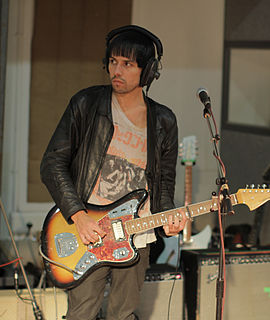A Quote by Ryan Jarman
It would just be a pamphlet. Three pages. The first page would be Drugs I Have Taken and then a list. The next page would be People I Have Slept With and then another list. Then the last page would be Famous People I Have Partied With and then another list. Because that's all people write in their autobiographies. Cut out all the bullshit and it's just a three-page pamphlet.
Related Quotes
He was beastly tired, but it was hard to stop. One more book, he had told himself, then I'll stop. One more folio, just one more. One more page, then I'll go up and rest and get a bite to eat. But there was always another page after that one, and another after that, and another book waiting underneath the pile. I'll just take a quick peek to see what this one is about, he'd think, and before he knew he would be halfway through it.
I put my name on that Occupy Musicians list because someone wrote to me and said, "Would you do this?" I said, "Yeah sure, I support this." What artist wouldn't support that? What's the big deal? But then people wrote to me, "Wow! You're on that list!" And I'm like, "Who isn't on that list?" That would be more shocking.
At times I believed that the last page of my book and the last page of my life were one and the same, that when my book ended I'd end, a great wind would sweep through my rooms carrying the pages away, and when the air cleared of all those fluttering white sheets the room would be silent, the chair where I sat empty.
A lot of people think that they are really cool because they don't outline. In my writing group, they would say, "I will never outline. I let the characters take me." C'mon, man - I outline the story, but it's only like one page. It's a list of possible reversals in the story, like things where everything will just change because of this certain reveal or this certain action. Then I start really digging into the character because, to me, I don't care what the story is.




































